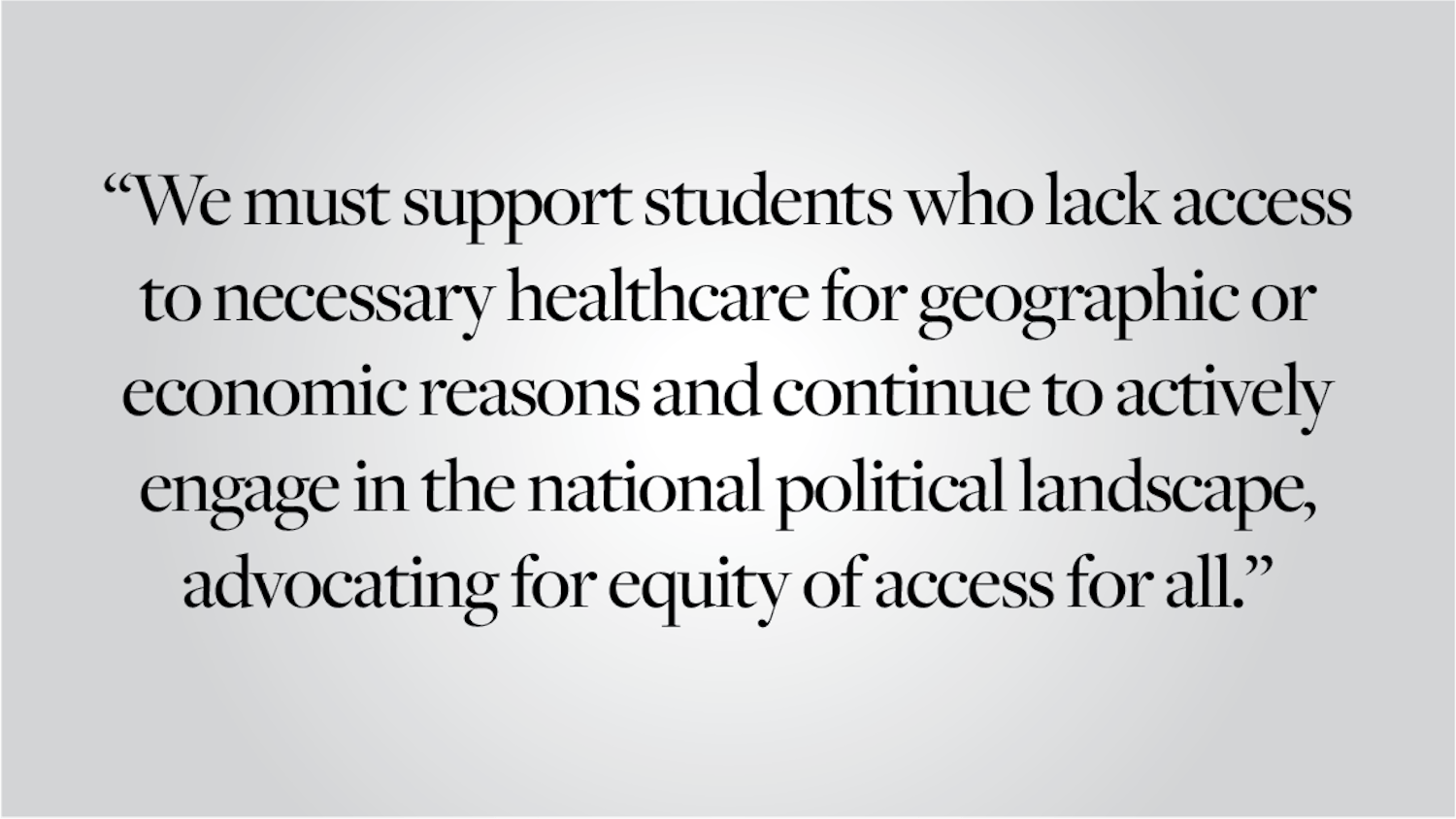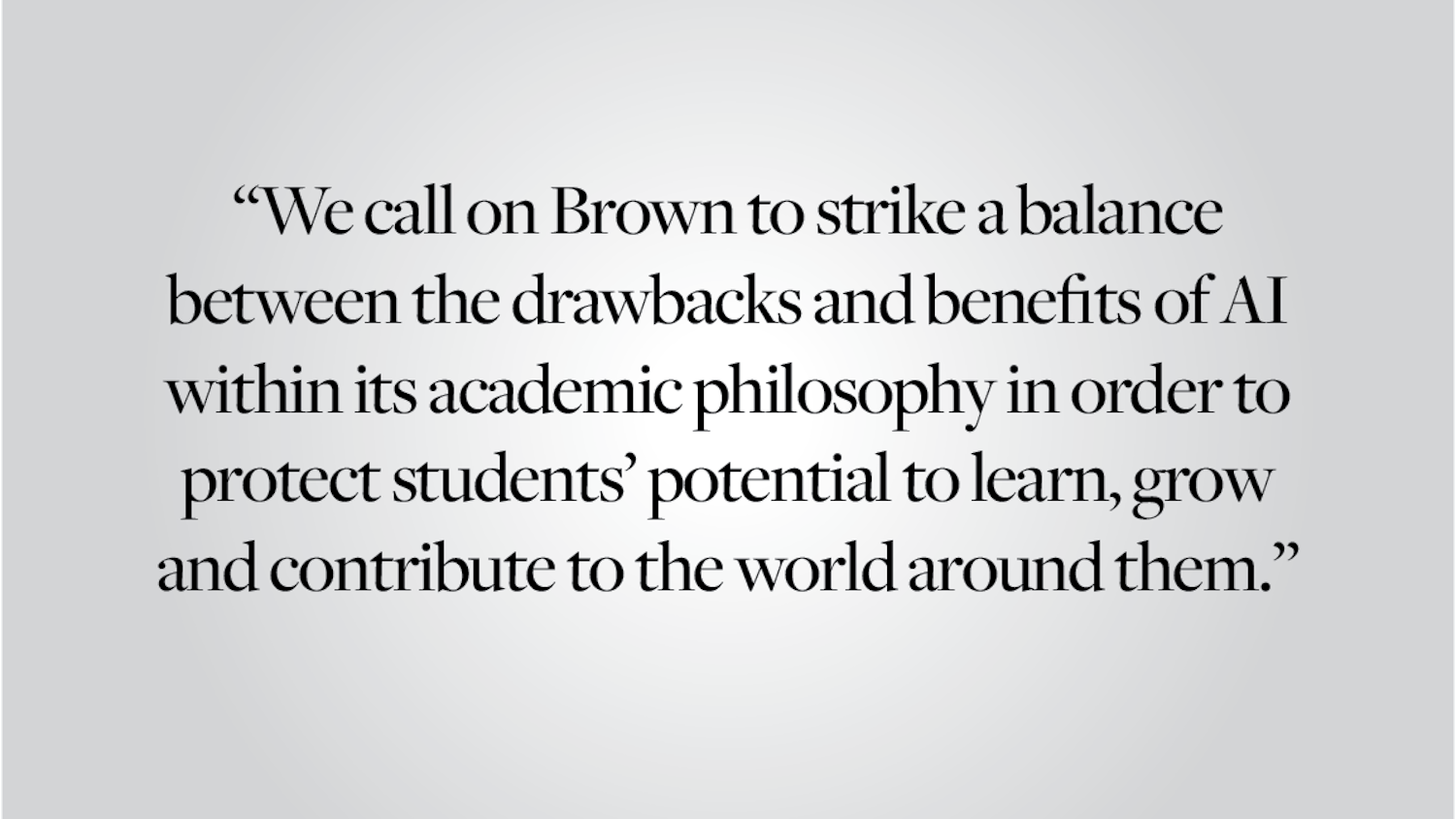Tonight's speech by former Pakistani President Pervez Musharraf is an opportunity. Musharraf, who came to power in a coup in 1999 and held on to power until his resignation amidst impeachment threats in 2008, is one of the most significant and controversial figures in contemporary international politics. The crucial issues surrounding his legacy include Pakistan's role in Afghanistan, the stability of Pakistani democracy and India-Pakistan relations. And though his speech's anodyne title, "Leadership Experiences," isn't conclusive, we expect him to address them.
Given the importance of such topics, we expect Brown students to approach the question-and-answer with characteristic thoughtfulness and intellectual curiosity. There will be a few exceptions, but we'd hope the harangues-posing-as-questions or, ahem, baked goods exhibitions will be kept to a minimum. Students learn nothing from such outbursts except that you can be "that guy" without being in section, and that it's even worse when more people are watching. So if you're working on a rambling, poorly disguised attempt to show off how smart you are instead of a real question, we'd ask that you avoid embarrassing yourself and reconsider. To help, we're providing you with a list of five questions you could ask instead:
1. Many Pakistanis strongly oppose the U.S. presence in Afghanistan, principally because of the U.S. drone strikes in Pakistan that President Obama is considering escalating. Do you think the U.S. campaign in Afghanistan and tactical deployment of drones are justified?
2. Criminal charges have been filed against you for detaining Pakistani Supreme Court justices. You have defended your firing of the Chief Justice on the grounds that it was a poor policy decision but the result of an action required by Pakistani law.
Could you explain this position and its connection to the charges against you?
3. The recent call by Indian nuclear scientist K. Santhanam to resume nuclear testing, based on his contentious claim that India's 1998 nuclear test was a failure, has set off a firestorm in the Indian press. This debate has created significant concern among Pakistani policymakers that India is thinking about restarting tests, ratcheting up regional tensions. Incidents like these raise red flags about the desirability of the nuclear stalemate between India and Pakistan. More succinctly, do you think India and Pakistan ought to retain their nuclear arsenals, given their volatile history? If so, how do you feel about broader proliferation? If not, how would attempt to eliminate them?
4. There is significant evidence that some powerful elements of Pakistan's largest intelligence agency, Inter-Services Intelligence, are aiding al-Qaeda in Pakistan and Afghanistan. To what extent do you think these links are real or exaggerated and how would you propose to deal with them?
5. Based on your interaction with American policymakers, how concerned are they about securing Pakistan's nuclear weapons from terrorists? And, in your own opinion, how concerned do you think they should be?
We're sure students will come up with other questions that are more interesting and enlightening. But we also think some of you ought to take our advice. Or you could ask Musharraf whether his "hegemonic perspective takes into account the lived experiences" of all the ordinary Pakistanis that you met summering in the Hamptons. Your call.
Editorials are written by The Herald's editorial page board. Send comments to editorials (at) browndailyherald.com.




